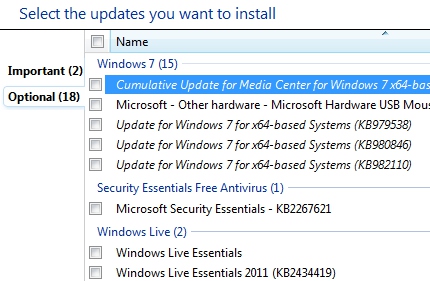Security Essentials - Microsoft's free to use home and small-business anti-malware package - has peacefully co-existed with the competition since it was launched last year. But now that the software-giant has stated to offer the software to customers through Windows Update it's been ruffling a few feathers among security companies.
Unfair competition
Carol Carpenter, a general manager at Trend Micro told Computerworld that "commercializing Windows Update to distribute other software applications raises significant questions about unfair competition."
"Windows Update is a de facto extension of Windows, so to begin delivering software tied to updates has us concerned," she commented, adding that "what concerns us is a vendor using market leverage to drive its solution in some unfair way".

Juan Santana, CEO of Panda Security, also weighed in on the issue. In comments made to CNET, he suggested that "this will end up in action taken, especially in Europe," noting that the company "will monitor the situation".
An unproven track-record
However, Pedro Bustamante, a senior researcher at the company, went further, blasting Microsoft in a blog post for pushing a "basic product" that "has not proven itself to provide sufficient protection". He continued to slate the software-giant for trying to create a "monoculture" that would allow hackers to easily infect "hundreds of millions" of computers and for failing to spend resources "on making the OS more secure, not just putting a band-aid on it".
When questioned, representatives from Symantec and McAfee refused to tackle the issue, claiming that their paid products offered a different level of protection.
Line in the sand
At this point, it seems unlikely that will Microsoft fall-foul of any competition-laws. Not only is the software only being offered as an optional update, but it won't appear on systems that already have anti-virus software - from any vendor - installed. It'll also be unavailable to the estimated 40 per cent of systems running pirated copies of Windows. A fellow from Gartner echoed these sentiments, commenting that bundling software in with the OS was "where the line typically is drawn with antitrust issues".
We're inclined to agree with the comments that, regardless of your thoughts on Security Essentials, some protection is better than no protection at all. Whether the European Commission sees it that way is another matter entirely.













